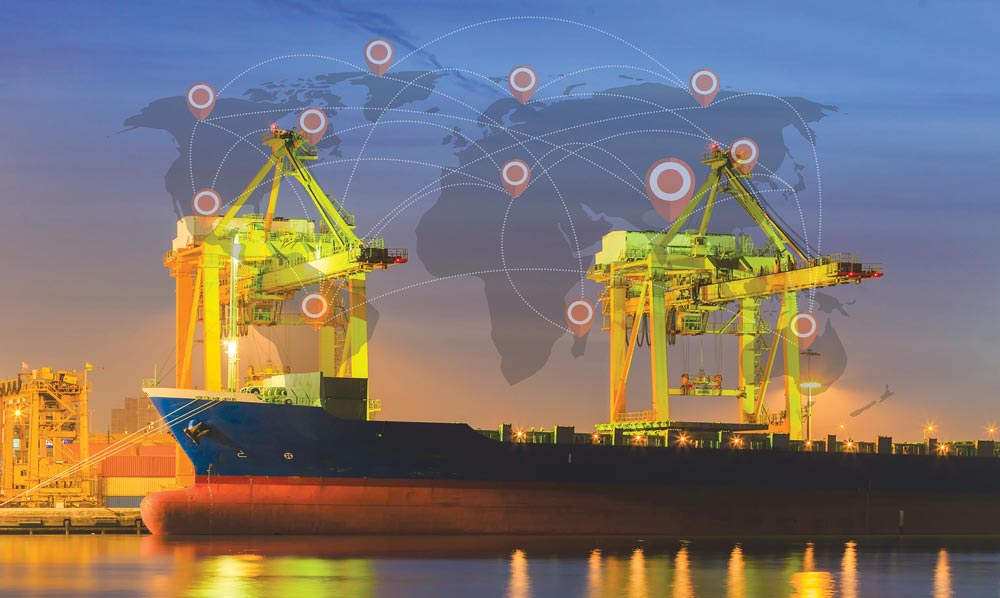G7 Executive Talk Series
Free Trade
Authored by: Dr Liam Fox, Secretary of State for International Trade
A Route to Global Prosperity
As Secretary of State for International Trade, I’m often asked what the benefits of free trade are for the UK and for our global partners. I tell them that free trade has the power to drive growth, jobs and opportunities both at home and overseas.
Equally important, however, is the power free trade has as an essential tool in the global fight against extreme poverty and the worldwide goal of the ending developing nations’ reliance on aid. The UK can, and does, consider this our obligation and our trade policy reflects this.
This has become an essential aspect of the UK’s approach.
A joint report by the OECD, ILO, World Bank, and the WTO shows that that per capita income grew more than three times faster for developing countries that lowered trade barriers than for other developing countries that did not.
The Department for International Trade (DIT) is keen to build on this advancement through efforts to accommodate the needs of developing countries in their quest to develop trading capability. DIT has ensured we continue to offer tariff and quota-free access for the Least Developed Countries as well as offering generous tariff reductions to around 25 other developing nations.
We will also seek to replicate the EU’s Economic Partnership Agreements, which are development focused trade deals with Africa, Caribbean and Pacific countries.
Our first priority is to deliver continuity in our trading arrangements on leaving the EU. Once we leave the European Union we will have the freedom to go even further in supporting the trading growth of developing nations and expand our trading relationships.
An essential element of any successful trading environment is mutual benefit and increasing these countries trading capacity will be of equal benefit to the UK. Look at Africa for example. Research by the McKinsey Global Institute suggests that African household consumption will reach $2.1 trillion in 2025 showing the huge potential market for UK businesses.
Stronger trade relationships with developing economies are in our national interest, creating jobs and spreading mutual prosperity in this country, as well as overseas.
DIT works closely with the Department for International Development, and the rest of Government, to deliver new long-term partnerships with developing countries. Through these partnerships we seek to support aspirations for trade, investment, jobs and growth.

![]() The Department for International Trade (DIT) is keen to build on this advancement through efforts to accommodate the needs of developing countries in their quest to develop trading capability.
The Department for International Trade (DIT) is keen to build on this advancement through efforts to accommodate the needs of developing countries in their quest to develop trading capability. ![]()
UK companies can enjoy access to some of the world’s fastest-growing economies, and the chance to build lasting commercial relationships, driving growth and creating jobs.
Developing economies can benefit from the knowledge and experience that UK firms can offer through these commercial relationships. With consumers evermore after global products, forging these partnerships can only be of benefit to the global economy.
Trade is crucially about people – from entrepreneurs, to the people they hire and the families they support, this is at the core of what we are trying to achieve.
We must ensure that no one is left behind –that we provide an environment for every individual to realise their full potential – if we are to achieve sustainable growth that is genuinely inclusive and reaches all corners of societies.
For example, the Jaguar-Land Rover dealership I visited outside Johannesburg.At first glance, it is about selling luxury UK cars to the expanding middle-class market in South Africa.
But look closer and you will see some of the most underprivileged young people gaining skills in salesmanship or mechanics, developing marketable skills for their future.
We have also seen the UK-backed launch of the International Trade Centre’s (ITC) She Trades Commonwealth programme. This will provide Commonwealth governments with the data they need to identify and improve opportunities for women – and help female entrepreneurs to start trading.
These examples show the UK’s championing of free trade directly empowering individuals across society.
To achieve a truly liberalised trading environment, there is much to consider. Removing the red tape that hinders the transition of goods across borders is a key battle in establishing free global trade. This
is why the UK is supporting countries to implement the World Trade Organisation’s landmark Trade Facilitation Agreement that could boost global trade by up to $1 trillion.
The Commonwealth Standards Network is another example of DIT and DFID led initiative to remove bureaucratic barriers which will further facilitate and increase trade flows between countries by encouraging and supporting Commonwealth countries to work to common international standards.
Programmes like these enables the UK to be a voice for free trade and development, easing trade across borders and promoting inclusive policy. Through trade it is possible to spread prosperity, political stability and collective security. By championing free trade, the UK seeks to empower developing nations to sell to new markets, creating thousands of jobs and lifting yet more people out of poverty.